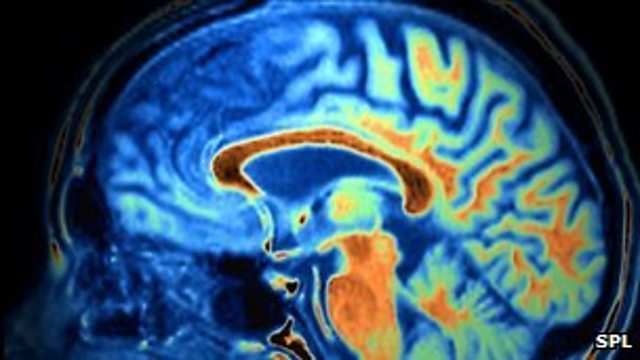Criminal Behaviour in Neurodegenerative Disease Patients
A study of criminal behaviour among patients with a dementing disorder; New technologies being used to improve vaccine coverage in Tanzania; A review of mobile phone mood apps
Antisocial or even criminal behaviour is an aspect of some forms of dementia which is often overlooked, but which can get patients into trouble with the law as well as causing real difficulties for their carers.
Dr Georges Naasan is a neurologist at the Memory and Ageing Center at the University of California, San Francisco. He noticed that many of his patients had been involved in such altercations, which made him wonder how common it is and whether it was more prevalent in certain neurodegenerative diseases. So with colleagues, he set about investigating the frequency and type of criminal behaviour among patients with a diagnosed dementing disorder. The results have just been published in the Journal of the American Medical Association Neurology.
Tanzania Vaccines
Now that 2015 has begun, we are approaching the deadline for the millennium development goals; eight international development goals set to improve the lives of the most poor. Goal number 4, to reduce by two-thirds the under-5 mortality rate between 1990 and 2015, has already been met by a few countries, including Tanzania. The number of children under 5 dying has fallen dramatically from 166 deaths per 1000 births in 1990 to 52 in 2013, despite the challenges of providing healthcare to a majority rural population. The goal has largely been met by improving immunisation coverage, to ensure children are protected from diseases such as tetanus, toxoid, measles, and recently diarrhoea, pneumonia and rubella.
The ÃÛÑ¿´«Ã½â€™s Meera Senthilingam has been in one of Tanzania’s most rural locations to see how these vaccines are reaching those in most need and to discover new technologies being adopted to reach the final few.
Mood Apps
Apps for smart phones and tablets that track our mood and our emotions are fast growing in numbers, but they are so new that there has not been time for academics or clinicians to test their effectiveness using independent systematic trials. They are already proving to be very popular, but how many of the latest offerings are based on sound psychological principles, and could some of them do more harm than good? Clinical psychologist Lucy Maddox reviews a selection of these apps (Headspace; Mindfulness in Schools; Dream:ON; MyMoodtracker; Thought Diary Pro; Mood Kit)
(Photo: Frontaltemporal dementia MRI scan. Credit: Science Photo Library.)
Last on
More episodes
Chapters
-
Neurodegenerative disease patients who commit crimes
A study of the frequency and type of criminal behaviour
Duration: 06:50
Barcoding vaccines
Technologies Tanzania is using to improve immunisation coverage
Duration: 07:10
Mobile phone mood apps
Are they based on sound psychological principles?
Duration: 09:27
Broadcasts
- Wed 7 Jan 2015 19:32GMTÃÛÑ¿´«Ã½ World Service Online
- Thu 8 Jan 2015 00:32GMTÃÛÑ¿´«Ã½ World Service Online
- Thu 8 Jan 2015 04:32GMTÃÛÑ¿´«Ã½ World Service Online
- Thu 8 Jan 2015 13:32GMTÃÛÑ¿´«Ã½ World Service Online
- Sun 11 Jan 2015 11:32GMTÃÛÑ¿´«Ã½ World Service Online
Podcast
-
![]()
Health Check
Health issues and medical breakthroughs from around the world.


